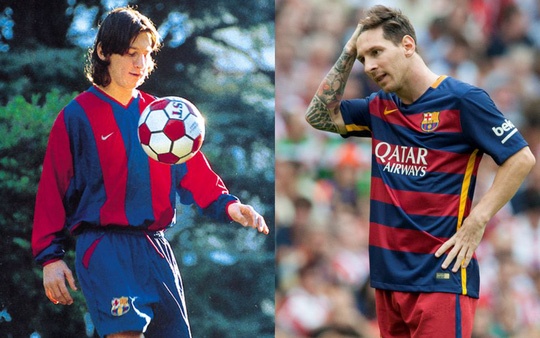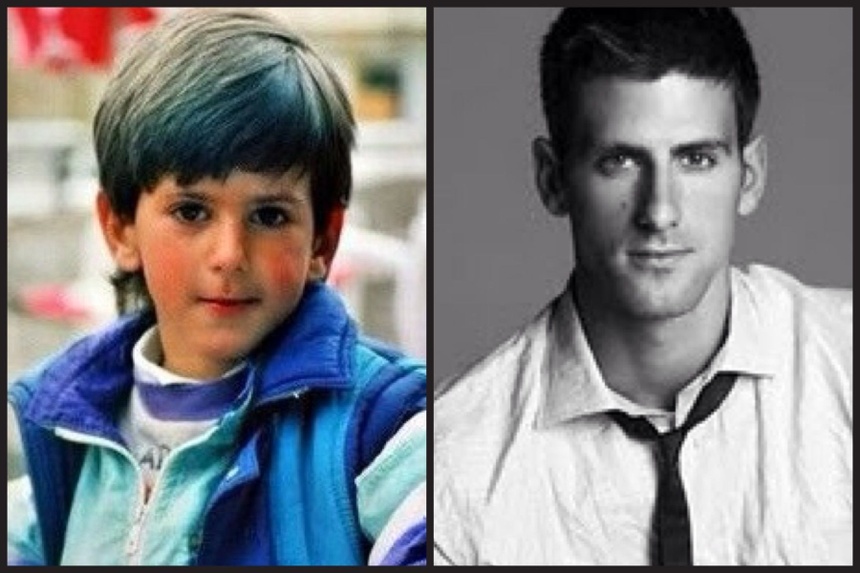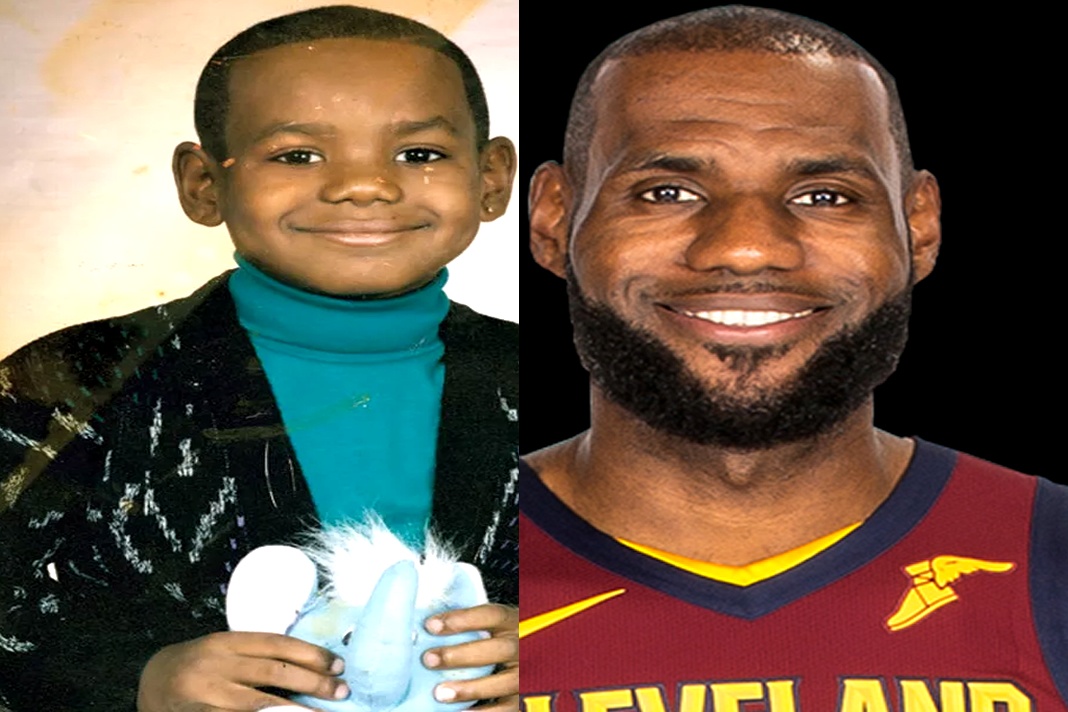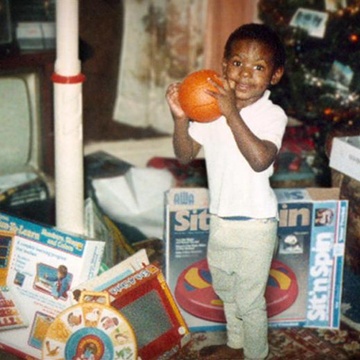Lionel Messi, Novak Djokovic, LeBron James all experienced difficulties and challenges of fate, but they overcame them with courage and determination to achieve their current achievements.
Three sports legends Lionel Messi, Novak Djokovic, LeBron James all cherish big dreams, and have to go through hardships and challenges of fate.
With courage, determination and a heart devoted to passion, they have overcome and achieved the achievements they have today.
Suffering from hormone injections every night, little Leo still rolls up his socks and bags to practice playing soccer alone.
Considered one of the best players of all time, the owner of many noble titles such as the 2009 European Golden Ball, FIFA Player of the Year 2009, FIFA Golden Ball in 2010, 2011, 2012 and 2015, but Lionel Messi had to go through countless challenges to reap the results today.
As a child, Messi suffered from a growth hormone disorder, which caused his body to develop more slowly than his friends.


Messi has a growth hormone disorder, which causes his body to develop more slowly than his friends.
Since the age of 8, Leo (Messi’s nickname – PV) has had to start taking hormone injections. His family is not well off, the monthly treatment costs are not small, plus the painful treatment process, having to be friends with nightly injections has become an obsession for the young man.
“I had to have an injection every night, starting when I was 8 years old. It was a habit and something I had to do.”
Pain could not stop Messi’s passion for football. Despite his physical handicap and the poverty of his family, little Leo was often seen rolling up socks and torn bags to play alone.
In 2001, Barcelona appeared. The football genius’s first contract was signed on a napkin, with three people in attendance: his father, Josep Minguella, and former player Carles Rexach.
The team agreed to take both Messi and his family to Spain, and pay for all treatment costs with the most advanced methods.
 The football genius’ first contract was signed on a napkin.
The football genius’ first contract was signed on a napkin.
“My career has not always been perfect. There have been dark days, matches that didn’t go my way, injuries at the wrong time, but because I know what I want, what I like, what I need to do. At that time, those difficulties and failures were just experiences. In fact, they made me more determined,” Messi told the New York Times in an interview in 2016.
The effort to overcome difficulties, crush physical pain, conquer challenges at all costs, dare to dream to achieve dreams, and overcome the injustice of fate has created a genius Lionel Messi with artistic passes on the football field like today.
Tennis great holds firm on tennis dream, leaves bomb shelters behind
Novak Djokovic is the world’s number 1 male tennis player, having won a total of 74 Grand Slam titles and Masters singles titles since 2006. He is also one of the highest-paid sports stars. According to Forbes magazine, Novak Djokovic earned $23.5 million in 2018 .
Djokovic’s 12th birthday was in May 1999, the same month NATO bombed the Serbian capital. A decade of war and turmoil had torn the Balkans apart, with his hometown of Belgrade at the center.

Djokovic’s childhood coincided with the NATO bombing of the Serbian capital.
“When the alarm bells and the screeching of the planes went off, no one knew where the bombs would fall,” Djokovic’s grandfather recalled.
“The basement was also our residence. We all had to adapt. But those experiences made me a tougher person, more hungry for success. Those are the qualities that make a champion,” Djokovic recounted in a CBS television report in 2011.
It was also during those dark and fearful days in the bomb shelter that young Djokovic still strongly nurtured a dream and persistently and persistently pursued tennis.
He read books, watched instructional videos and pursued his goal of becoming the world’s number one tennis player in the future.
Amidst the fragile boundaries of survival, Djokovic still steadfastly followed his coach everywhere to practice because the capital was affected and everything was destroyed.
Loud explosions tore through the capital, everything was destroyed, many people were injured, but only young Djokovic’s dream of winning Wimbledon remained unshaken.
 “I have to create my own smile, overcome fate, overcome all difficulties, and reach my dream at all costs.”
“I have to create my own smile, overcome fate, overcome all difficulties, and reach my dream at all costs.”
“But there was nothing else I could do, I had to create my own smile, overcome my fate, overcome all difficulties, and reach my dream at all costs. If someone put a barrier in front of me, I had to break it. People say I didn’t have many options at that time, but I did. I created my own goals and broke everything that stood in my way,” said the 15-time Grand Slam winner.
Sasa Ozmo, a journalist for Sport Klub , described Djokovic as a hero. “He is a role model,” Ozmo added.
“We also have excellent sportsmen but their influence will never be equal to Novak’s. Tennis is only the third most popular sport in Serbia, after football and basketball, but Novak is the most famous name,” this person said.
King James – from poor street kid to king of basketball court
Lebron James is an American professional basketball player who is considered the most successful basketball player in modern sports.
He has won three NBA championships (2012, 2013, 2016), four Most Valuable Player awards (2009, 2010, 2012, 2013), three NBA Finals MVP awards (2012, 2013, 2016), two Olympic gold medals (2008, 2012), one NBA Scoring Title (2008), and Rookie of the Year (2004). He has been selected to the NBA All-Star team 11 times, the All-Defensive team six times, and is one of the Cavaliers’ and NBA’s all-time leading scorers.
James’ unfortunate past is not uncommon in the sports world, but it was terrible for a black child born in America in the 80s.

James’ childhood was spent without a home or father.
James’ mother, a 16-year-old single mother, gave birth to him while living on the streets of Akron, Ohio, and living entirely on welfare.
“My possession was a backpack that I wore on my back. I used to say to the backpack, ‘Time to roll,’ every time I had to leave an apartment with my mother,” James said, recalling his homeless childhood.
As a child, he was often only allowed to play basketball after the other kids had had enough of the court. The balls he used were also broken, deflated, and discarded.
The poor, wandering life of a black child in the 80s could easily break anyone’s will, turning them into a bad person with no place in society.
But it seems that “giving up” is not in James’ dictionary. It is James’ passion and iron will for basketball that has brought his life to the glorious page today.
It was those hours of practicing alone with discarded balls that nurtured and nurtured the passion of the future champion.
One day, James’s prominence in a basketball game for under-10s caught the attention of Frank Walker, a training specialist. He adopted the boy James and began helping him train.

“It was the only thing I had at the time. A ball and a basket of my own. I practiced every day like it was the only thing that existed. I had to try to overcome my fate, I couldn’t let my family background define me,” James recalled.
James had to try to adapt to his new family, and get used to the fact that he was no longer a poor homeless child.
“My difficult past and burning passion are the driving forces that make me excel. Others have a way out if they miss the ball, but I don’t. Who would I be if I wasn’t a champion? Who would accept a child without a father, without talent, without a future, without dreams, without achievements?”
Looking back on his career many years later, LeBron James admits that he has had his fair share of stumbles and failures. His career has never been filled with sweetness.
“But the difference is that I stood up, smashed the difficulties, knocked down everything that prevented me from becoming great, to succeed. From the time I first knew myself at the age of 15 until today, life experiences, both good and bad, have continuously beaten me. But they have brought me countless lessons. And the thing I understand most clearly is: Be brave, be ready to face, prepare to fight for your goals and dreams,” James said.





